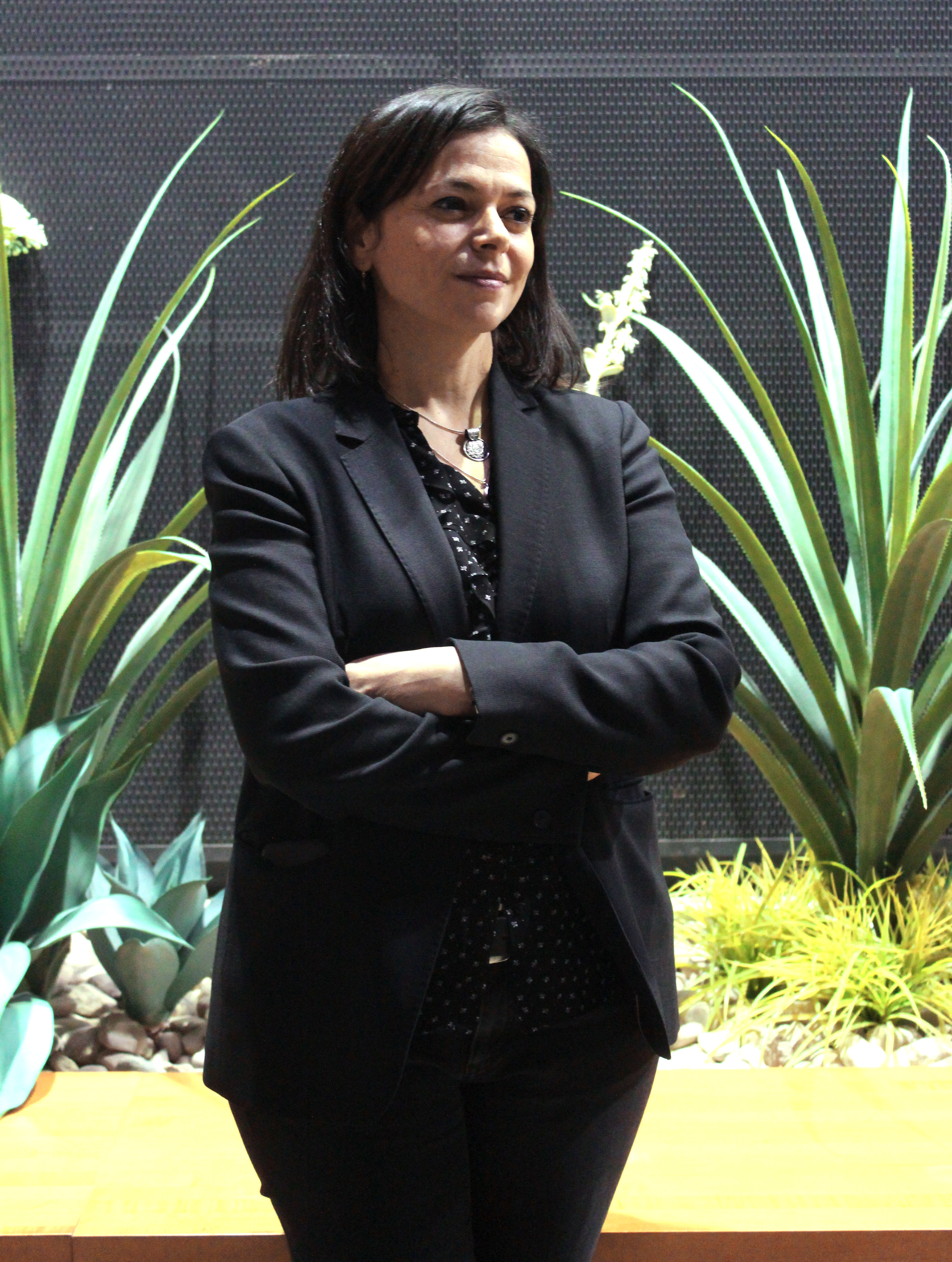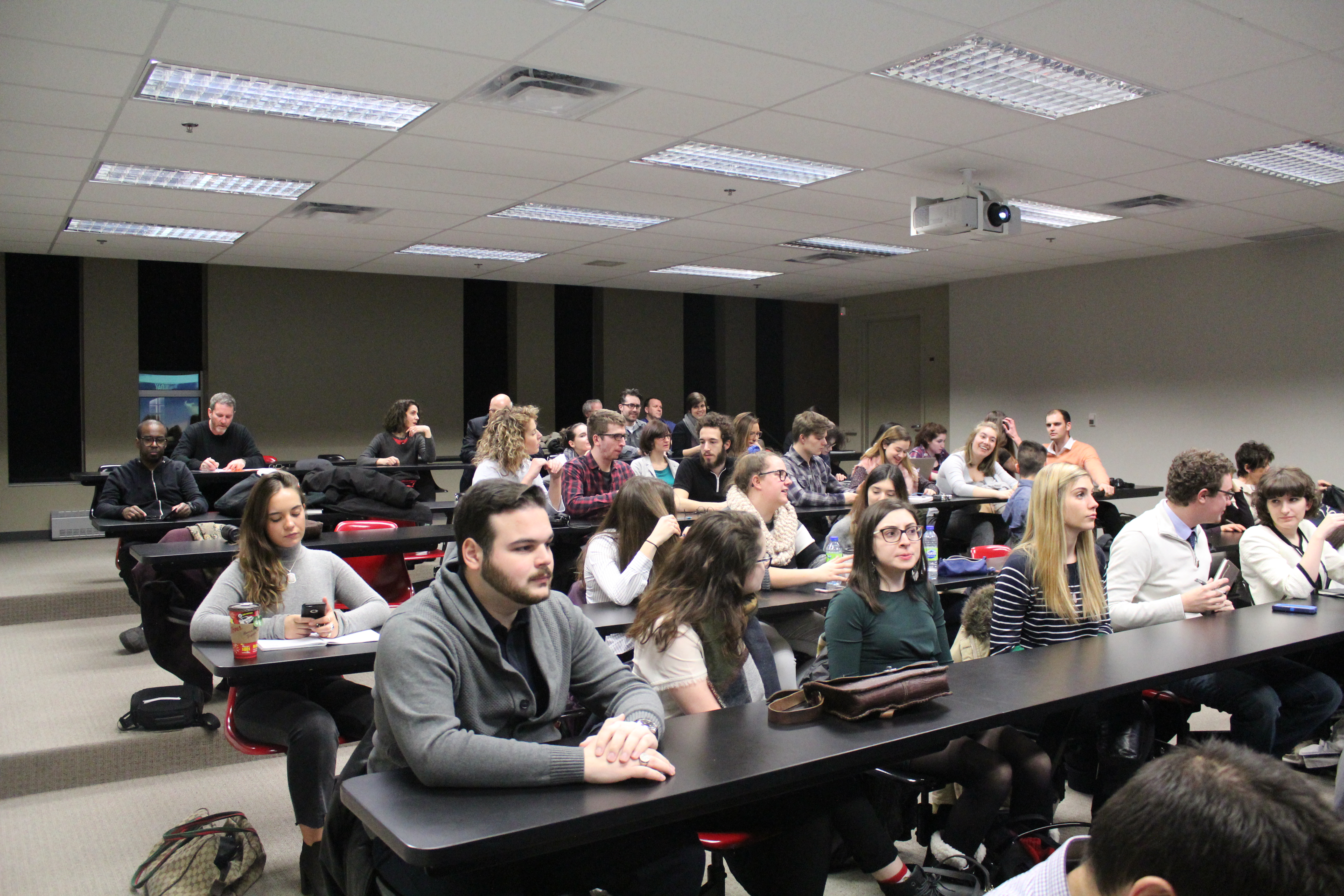The foreign correspondent spoke about her experience covering the refugee crisis
Nahlah Ayed, a foreign correspondent with the Canadian Broadcasting Corporation (CBC) based in London, England, gave a talk on Feb. 8 at Concordia University to discuss issues of immigration, migration and refugees.
She opened the discussion with a clip of an episode of CBC’s The Fifth Estate called “Saved at Sea,” which she reported on. The Fifth Estate is a weekly Canadian investigative documentary program which reports on various political and controversial issues and the people whose lives are affected by them.
Ayed’s “Saved at Sea” focused on refugees and migrants who were rescued from the Mediterranean Sea by the Red Cross/MOAS Responder. In the episode, she tells their stories and details their efforts to find a better life in European countries.
“This has been a documentary 15 years in the making,” said Ayed. Back in 2008, she met an Iraqi refugee as he waited her table at a restaurant in Paris. “I was thinking about writing a book on refugees and the Middle East, but he wasn’t very comfortable talking to me. He didn’t want any trouble,” she said. Having traveled on foot from Iraq to Europe, Ayed believed he was the perfect example of the lengths people were willing to go to escape Saddam Hussein’s Iraq.
Ayed described how, in 2003, there were thousands of people fleeing Iraq, usually to Syria which was safer at the time. “This new wave that started was something we’d never seen in the Middle East before,” she said. Ayed was then sent to the Iraq border with her crew. “I stood at that border, and thousands of people were crossing the borders with their belongings, children, extended families and their stories,” said Ayed.
There were two stories coming across the border, Ayed said. One about Iraq itself and the politics, the other about these people trying to regain control over their interrupted lives. “I felt that the future of Iraq itself rested on what these people could do to survive successfully,” she said.
“Dozens of stories were based on that one day at border. I wanted to do a story of people who were doing the impossible to get out of the country.”

In 2015, people were starting to pay more attention to refugee crises, Ayed said, this time to the Syrian crisis. Due to the prominence of social media, the Syrian crisis became more accessible.
“I remember meeting two Syrian women talking about the dilemma about what to do with their children, their young men. Once they were old enough, they were either going to be recruited by ISIS or by the Assad regime and, therefore, they would send them out to smugglers or any other ways to get them out of Syria,” she said.
“We went out to the borders, just like we did in Iraq, but this time in the heart of Europe,” Ayed said, as this was the location where people were fleeing to at the time. Her main question was what motivated these refugees.
Eventually, the journalist got a spot on one of the Red Cross Responders travelling in the Mediterranean thanks to a Fifth Estate producer. “We were on the ship eight days before we finally saw a few boats coming towards us,” she said. “I had essentially a day to find the answers I was looking for.” Some people fled for in hopes to have better lives and security, some for economic reasons and some were forced to leave by smugglers.
Following the lecture, the journalist answered some questions from the audience. Several people asked about her role as a journalist when interacting with refugees. “[Refugees] feel betrayed by the media and the only approach is to be honest,” she replied. She said that about two out of three people will be open to sharing their story, but it depends on the person. “There is nothing more important for a journalist than to use the truth as a weapon. You want to tell the stories you see and hope people will open up to them.”
Ayed herself experienced hard times when reporting in Iraq, which she told The Concordian about. “We were about to cover a story after Saddam had fallen, and we were near an explosion and I felt very unsafe. The crew and I were separated and I was physically harmed before a really nice guy, who understood I had nothing to do with it, came to save me,” Ayed said.
She also offered some tips to aspiring international journalists. “If you want this career, you should start by covering foreign stories in Canada,” she said, suggesting cultural community centres as one place to find such stories. “That’s what I did.” She added that learning a second language is definitely useful, but that it shouldn’t hold a journalist back from pursuing a story.
For her next project, she will try to contact people from the Red Cross Responder to find out where they are now and how their lives have changed.




